Mel Cooke, STAR Writer
Rollington Town Primary signed on to the PALS programme in 1997, current principal (and then teacher) Dr Margaret Bailey telling THE STAR, "At the time, we were very enthusiastic about the programme, as we had disciplinary problems. PALS came to our rescue in addressing the disciplinary problems."
Bailey says that, in large part, the violence at Rollington Town Primary was a spin-off of what was happening in the community. And the programme did filter out to the community, as had been hoped. Bailey says, "The children went home and sang the song and talked about Perky Parrot." She added: "We tried to get the parents involved. We held numerous workshops. We trained them in how to resolve conflict with their partners and in the community; also, the things they say in front of their children to incite violence, as well as what they say to the students to damage their self-esteem."
"In the wider community, it had the effect we wanted," Bailey said.
Rollington Town community co-ordinator, Ronnie Wilmot, has seen that effect from outside the school, as 14 persons from Rollington Town and Norman Gardens completed the Super-PALS programme, 10 evening sessions from August to November 1998. He points out that some of the participants, many of whom were heavily involved in community activities, have gone on to other levels of community involvement. So Fabian McGowan is now councillor of the Springfield division in the Kingston and St Andrew Corpo-ration, Kirk Brown is involved in the police youth club, and Alfred Palmer is into community work.
Volatile Communities
"It was a programme that was proactive, not reactive," Wilmot said. He described a situation where Rollington Town was changing, with fewer resident homeowners and more tenants, as well as the community being bordered by volatile communities whose residents often met on the social hub of Giltress Street and had disputes which escalated.
There was also the factor of an impending election, the 2002 poll which returned the People's National Party to power.
"It came at a time when the community was changing," Wilmot said, pointing out that "20 years ago, we would not have needed PALS."
Wilmot uses a wonderful ana-logy in assessing the SuperPALS effect on Rollington Town, many of the participants involved in sports and on the spot when disputes were just brewing. "It is like somebody is keeping themselves healthy. They are taking vitamins and minerals. The fact that they did not get sick, you can't say it is because of the vitamins and minerals," he said.
"Just as the programme had a marked effect on the teachers and students (of Rollington Town Primary), it had a marked effect on the participants who took it back to the community."
Resolve Disputes
Fabian McGowan says that the PALS approach of thinking before acting, which changed his personal approach as well, has stayed with him.
"Ignorance is always a killer. If you are brought up not knowing how to resolve disputes, you do what you know. You either fight it out - or whatever happens," he said. "It actually gave us another view, out-of-the-box thinking. You seek dialogue."
The change was very personal as well, McGowan saying that he was more "of the hothead type, to put it in layman's terms".
In his current capacity as councillor, McGowan has got word of disputes and intervened, the lessons he learnt over a decade ago coming into play.
"Once you have gone through it (the PALS training), it is hard to lose it. It is not a matter of going back. It has always been there with me and those are the skills that come out naturally," McGowan said.
After an extended break, during which the administration still kept the programme and its principles going, PALS is officially back at Rollington Town Primary, one of 90 primary and junior high institutions as well as 15 high schools, islandwide in which the programme is being implemented during the first phase of a five-year memorandum of understanding between PALS and the Ministry of Education.
Bailey says this time around, it is not any less effective. And she intends to keep it in place permanently. "I am currently doing a conflict resolution action plan, so it can be sustained," she said.
Rollington Town Primary signed on to the PALS programme in 1997, current principal (and then teacher) Dr Margaret Bailey telling THE STAR, "At the time, we were very enthusiastic about the programme, as we had disciplinary problems. PALS came to our rescue in addressing the disciplinary problems."
Bailey says that, in large part, the violence at Rollington Town Primary was a spin-off of what was happening in the community. And the programme did filter out to the community, as had been hoped. Bailey says, "The children went home and sang the song and talked about Perky Parrot." She added: "We tried to get the parents involved. We held numerous workshops. We trained them in how to resolve conflict with their partners and in the community; also, the things they say in front of their children to incite violence, as well as what they say to the students to damage their self-esteem."
"In the wider community, it had the effect we wanted," Bailey said.
Rollington Town community co-ordinator, Ronnie Wilmot, has seen that effect from outside the school, as 14 persons from Rollington Town and Norman Gardens completed the Super-PALS programme, 10 evening sessions from August to November 1998. He points out that some of the participants, many of whom were heavily involved in community activities, have gone on to other levels of community involvement. So Fabian McGowan is now councillor of the Springfield division in the Kingston and St Andrew Corpo-ration, Kirk Brown is involved in the police youth club, and Alfred Palmer is into community work.
Volatile Communities
"It was a programme that was proactive, not reactive," Wilmot said. He described a situation where Rollington Town was changing, with fewer resident homeowners and more tenants, as well as the community being bordered by volatile communities whose residents often met on the social hub of Giltress Street and had disputes which escalated.
There was also the factor of an impending election, the 2002 poll which returned the People's National Party to power.
"It came at a time when the community was changing," Wilmot said, pointing out that "20 years ago, we would not have needed PALS."
Wilmot uses a wonderful ana-logy in assessing the SuperPALS effect on Rollington Town, many of the participants involved in sports and on the spot when disputes were just brewing. "It is like somebody is keeping themselves healthy. They are taking vitamins and minerals. The fact that they did not get sick, you can't say it is because of the vitamins and minerals," he said.
"Just as the programme had a marked effect on the teachers and students (of Rollington Town Primary), it had a marked effect on the participants who took it back to the community."
Resolve Disputes
Fabian McGowan says that the PALS approach of thinking before acting, which changed his personal approach as well, has stayed with him.
"Ignorance is always a killer. If you are brought up not knowing how to resolve disputes, you do what you know. You either fight it out - or whatever happens," he said. "It actually gave us another view, out-of-the-box thinking. You seek dialogue."
The change was very personal as well, McGowan saying that he was more "of the hothead type, to put it in layman's terms".
In his current capacity as councillor, McGowan has got word of disputes and intervened, the lessons he learnt over a decade ago coming into play.
"Once you have gone through it (the PALS training), it is hard to lose it. It is not a matter of going back. It has always been there with me and those are the skills that come out naturally," McGowan said.
After an extended break, during which the administration still kept the programme and its principles going, PALS is officially back at Rollington Town Primary, one of 90 primary and junior high institutions as well as 15 high schools, islandwide in which the programme is being implemented during the first phase of a five-year memorandum of understanding between PALS and the Ministry of Education.
Bailey says this time around, it is not any less effective. And she intends to keep it in place permanently. "I am currently doing a conflict resolution action plan, so it can be sustained," she said.
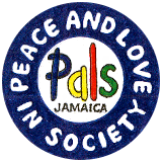
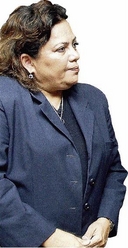
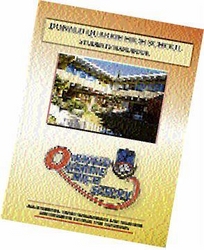
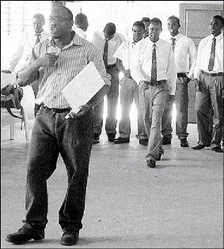
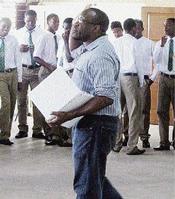
 RSS Feed
RSS Feed